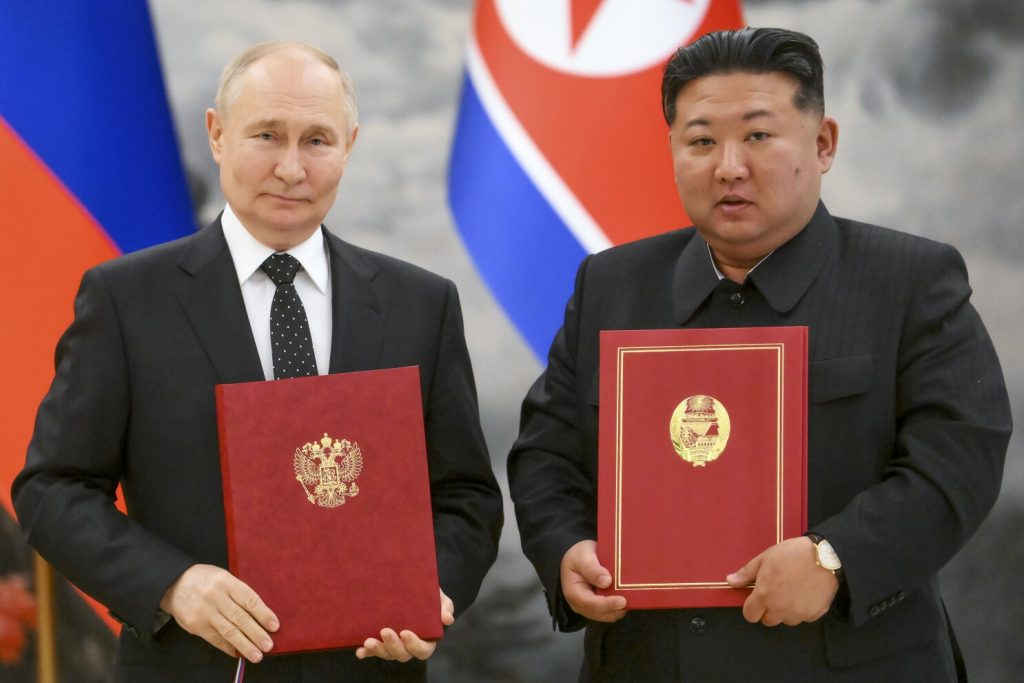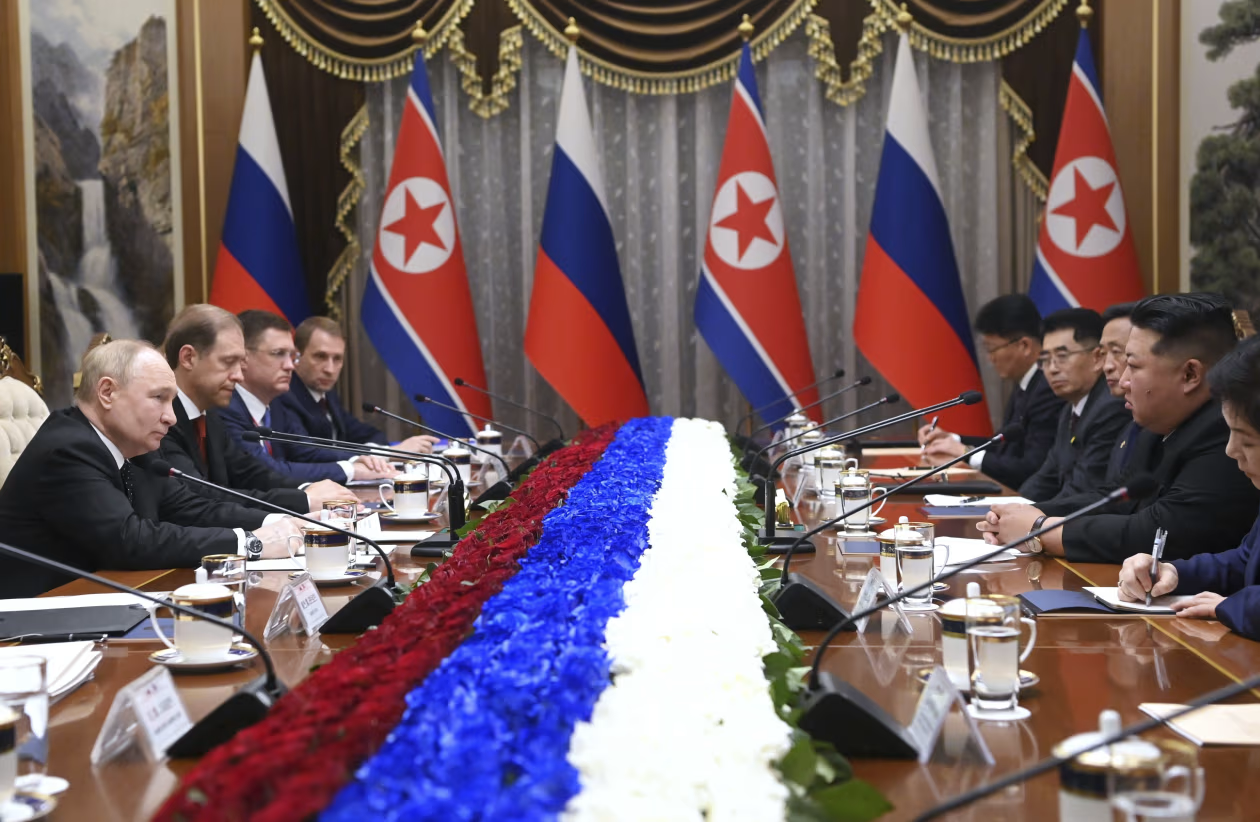North Korea has defended its growing military cooperation with Russia, insisting the partnership aims to promote peace and stability in Europe and Asia, despite widespread international condemnation.
The two nations have deepened their military alliance in recent years, with North Korea supplying weapons and troops to aid Russia’s ongoing war in Ukraine. According to South Korean lawmaker Lee Seong-kweun, citing intelligence reports, approximately 600 North Korean soldiers have died and thousands more have been wounded while fighting for Russian forces.
On Friday, a multinational sanctions monitoring group – comprising South Korea, the US, Japan, and eight other countries – criticised these military exchanges, labelling them “unlawful”. In a response published Monday, Pyongyang rejected the accusation, saying its partnership with Moscow is intended to protect national sovereignty and regional security.
A statement from a North Korean foreign ministry official described its relationship with Russia as the “cream of inter-state relations”, suggesting both countries were united in building a “multi-polar world order” grounded in equality, justice, and respect for sovereignty.

The Multilateral Sanctions Monitoring Team, which issued the condemnation, operates independently of the United Nations and was created last year following Russia’s veto of a UN Security Council resolution. That veto brought an end to the long-standing UN system for monitoring North Korea’s compliance with sanctions first imposed in 2006.
According to the group’s findings, Russian-flagged vessels transported up to nine million rounds of various munitions – including artillery and rocket launcher ammunition – from North Korea to Russia throughout 2024. In exchange, Russia allegedly provided Pyongyang with air defence systems and anti-aircraft missiles.
North Korea confirmed in April that it had formally deployed troops to Russia in support of Moscow’s war effort, marking the first official acknowledgment of its direct military involvement.


 Trending
Trending 